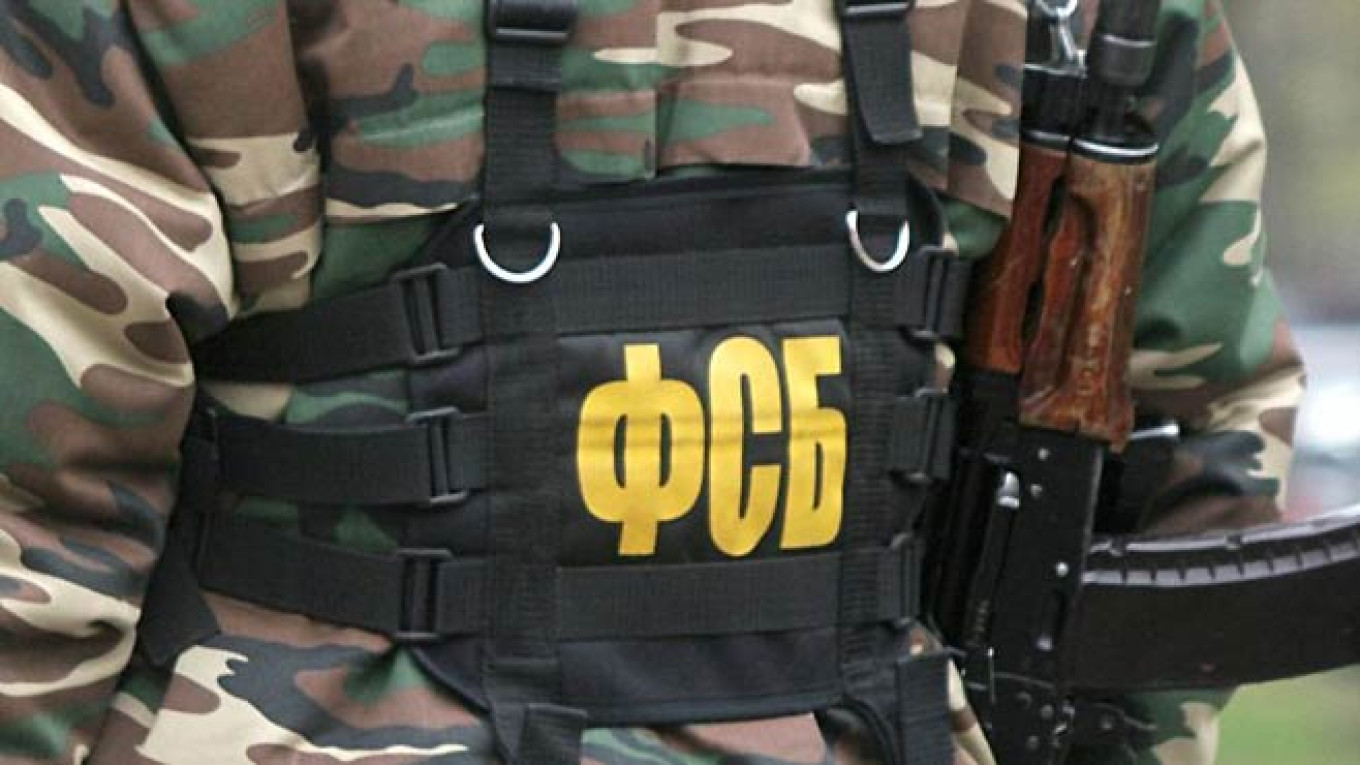A former Latvian parliamentarian has been deported from Russia after the country's Federal Security Service (FSB) accused him of spying on behalf of Latvia and the United States' Central Intelligence Agency (CIA), Russia's state-run NTV channel reported Sunday.
"I am Alexei Kholostov, an ethnic Russian and a citizen of Latvia. I am in Russia for the Latvian special forces, which work under the CIA's control," Kholostov said in a video posted to NTV's website on Sunday. ?
NTV reported that Kholostov had been recruited between seven and eight years ago, and had worked in Russia using "Gloria" as a code name.
According to the NTV report, Kholostov had been tasked with gathering information about the population's discontent with Russian officials, the government and President Vladimir Putin. He was allegedly caught preparing a report about an FSB employee.
The Latvian Foreign Ministry confirmed that Kholostov had been deported from Russia on the basis of alleged espionage, and that it was working to understand the circumstances surrounding the incident, Interfax reported. Neither Russian nor Latvian officials have specified when the deportation occurred.
"Russia's actions [with regard to Kholostov] are deplorable and bewildering," a spokesperson for the Latvian Foreign Ministry said in comments carried by Interfax.
Kholostov, who served two terms as a parliamentarian between 2006 and 2011, has presented himself as a defender of the rights of ethnic Russians in Latvia. He represented the Harmony Center party, which fosters close ties to the ruling United Russia party.
The Kholostov case is not the first spying controversy to hit Russia in recent days.
A German diplomat working in Moscow was also deported after a Russian diplomat working in Bonn, Germany, was expelled amid media reports the latter was a spy, Reuters reported Sunday.
"We regret this unjustified action and expressed that to the Russian government," a German official said in a statement released late Saturday after Der Spiegel magazine reported the German was expelled in retaliation for the Russian's expulsion.
The German diplomat, a woman, worked at the German embassy in Moscow. The Russian diplomat concerned had been under observation by Germany's anti-espionage agency, the Office of the Protection of the Constitution, for several months, Der Spiegel said.
It noted that other comparable cases of diplomats being expelled in the recent past had not led to retaliation.
(MT, Reuters)
A Message from The Moscow Times:
Dear readers,
We are facing unprecedented challenges. Russia's Prosecutor General's Office has designated The Moscow Times as an "undesirable" organization, criminalizing our work and putting our staff at risk of prosecution. This follows our earlier unjust labeling as a "foreign agent."
These actions are direct attempts to silence independent journalism in Russia. The authorities claim our work "discredits the decisions of the Russian leadership." We see things differently: we strive to provide accurate, unbiased reporting on Russia.
We, the journalists of The Moscow Times, refuse to be silenced. But to continue our work, we need your help.
Your support, no matter how small, makes a world of difference. If you can, please support us monthly starting from just $2. It's quick to set up, and every contribution makes a significant impact.
By supporting The Moscow Times, you're defending open, independent journalism in the face of repression. Thank you for standing with us.
Remind me later.


